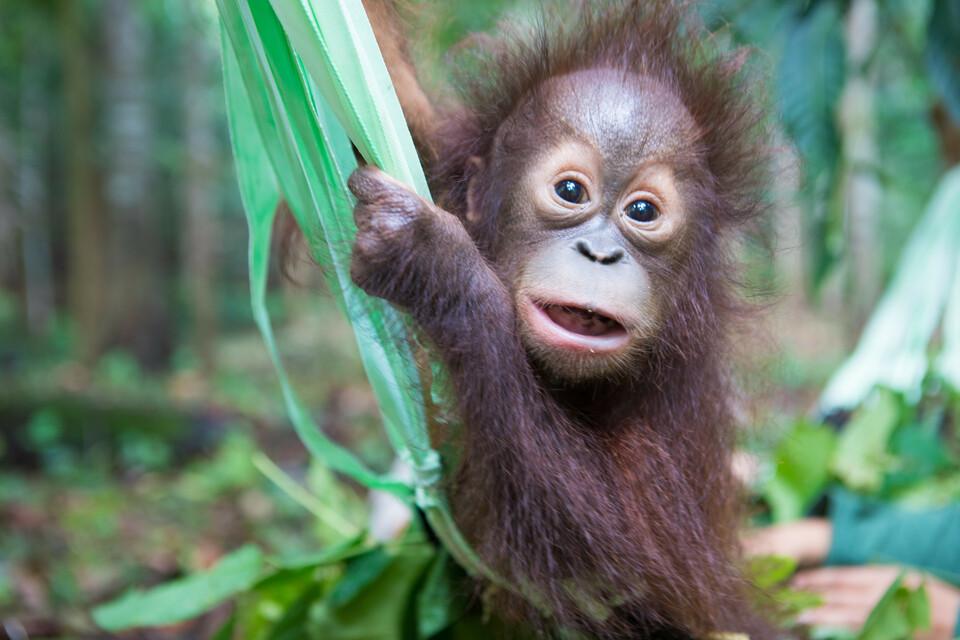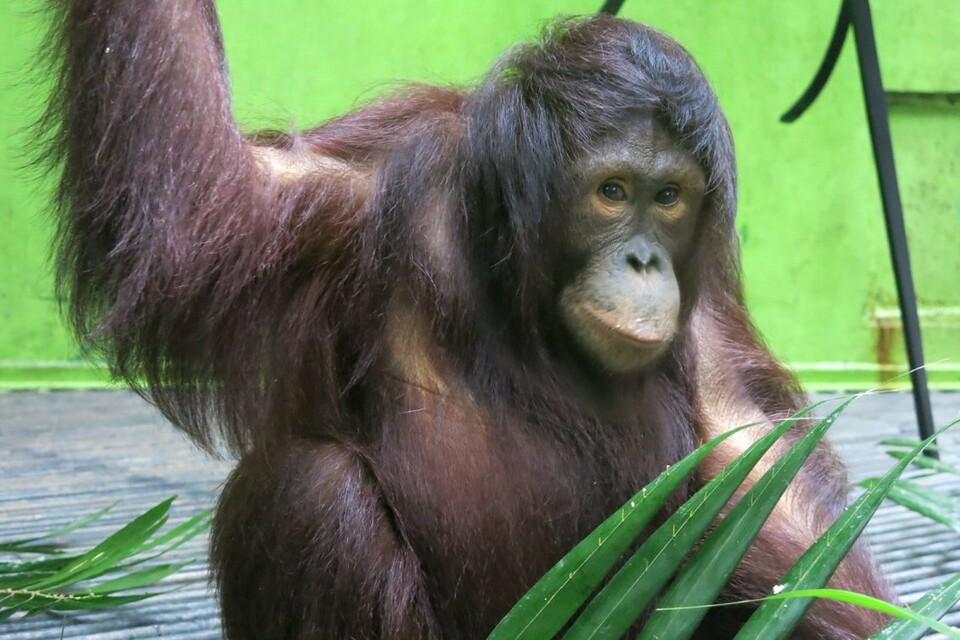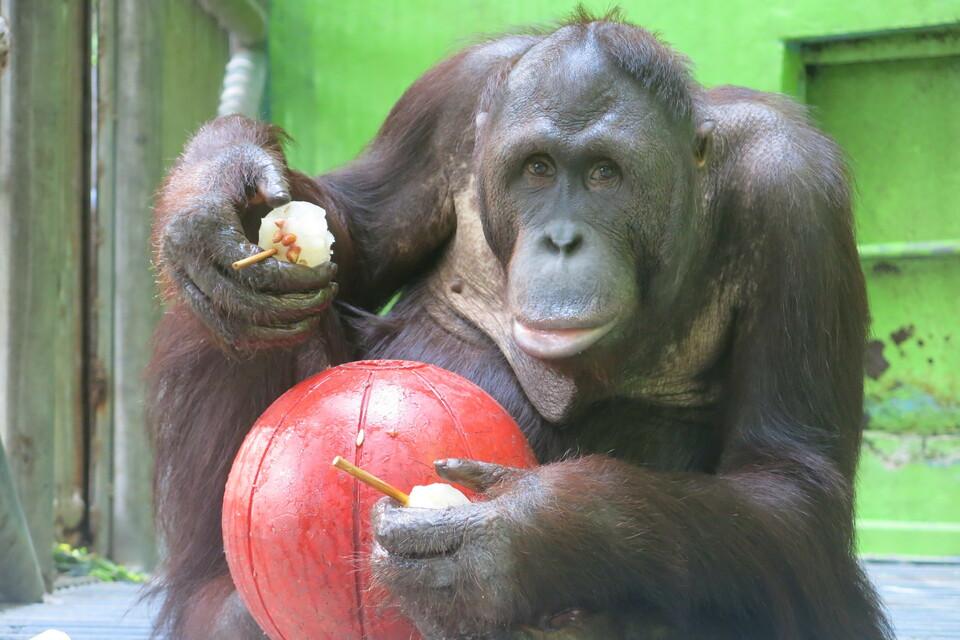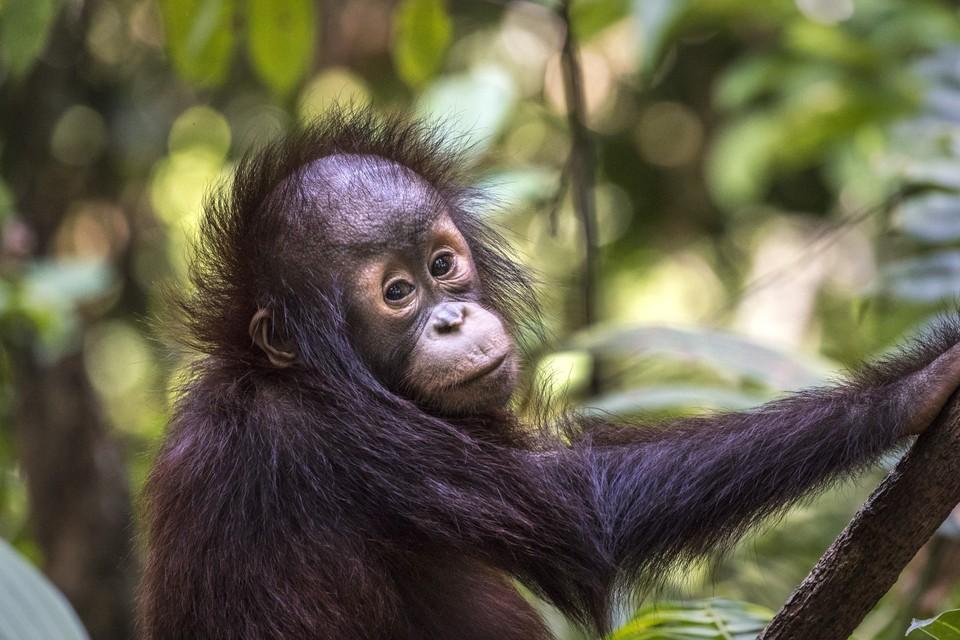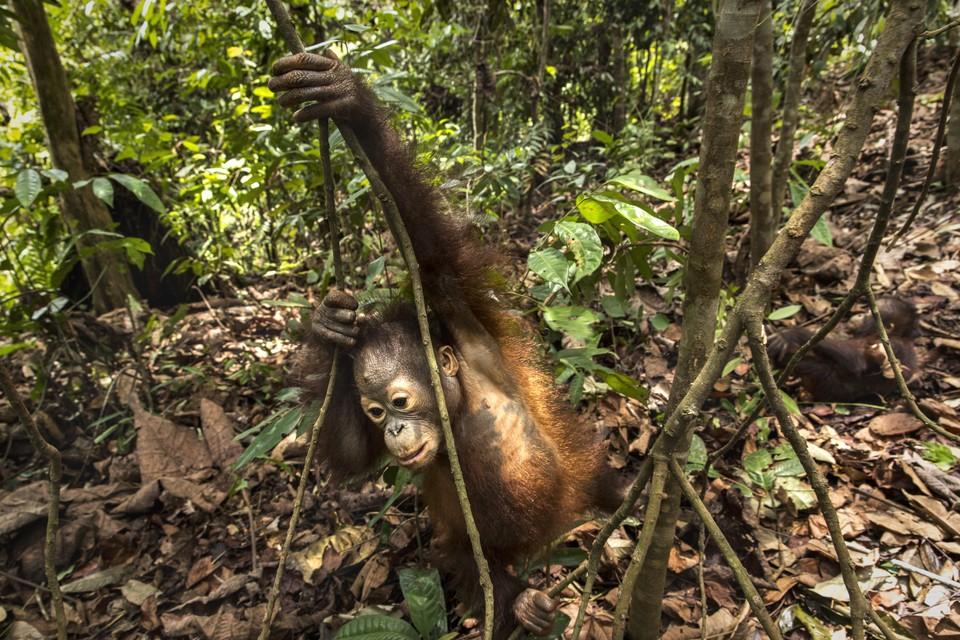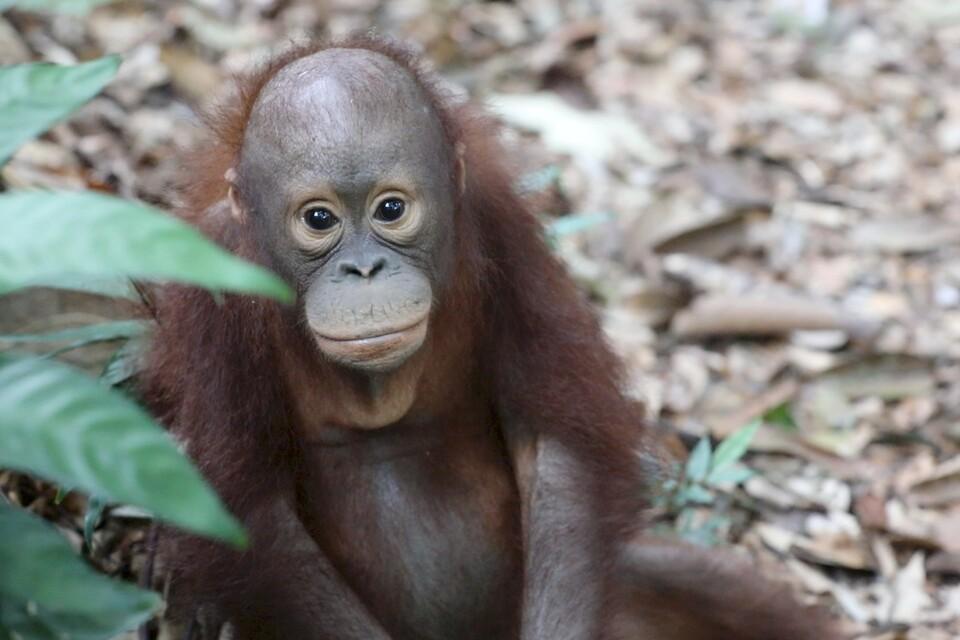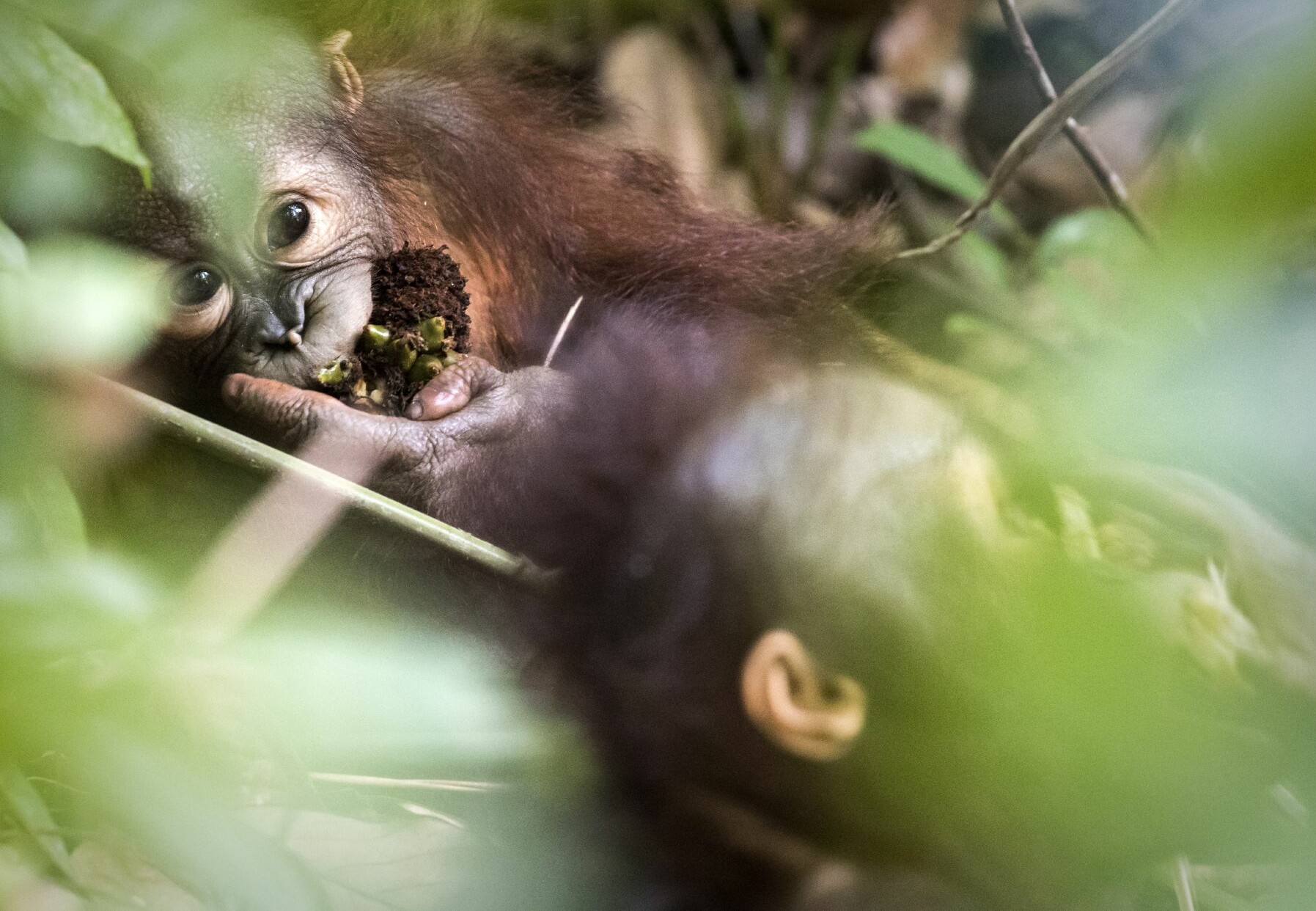
ORANGUTAN FOREST SCHOOL IN BORNEO
Giving baby orangutan orphans a second chance
Note: Any advertisements that may appear during the viewing of this video are unrelated to FOUR PAWS. We assume no liability for this content.
The ORANGUTAN FOREST SCHOOL is a programme for the rescue, rehabilitation and later release back into natural forest for orphaned wild-born orangutans. The programme is conducted by FOUR PAWS’ partner Yayasan Jejak Pulang in cooperation with the Indonesian Ministry of Forestry. Wild orangutans are safeguarded by the CITES convention and therefore under the protection of the governments of their range country – Indonesia and Malaysia. The 100-hectars forest school opened officially with a celebration act on 17.5.2018.
Today, we care for 12 orangutan orphans aged between 15 months and 12 years. Each orphan is likely to have witnessed the gruesome killing of their mothers, and occasionally show remnants of that trauma in their behaviour. Led by Dr Signe Preuschoft of FOUR PAWS, a primatologist with almost 30 years’ experience in great ape rehabilitation, our philosophy is to 'orangutanise' the caregivers and to avoid humanising the orangutans. We do this by immersing the orangutans into their natural forest habitat, but in the company of human surrogate mothers – the caregivers. Our oldest forest school pupils have already taken to sleeping in the forest, making nests in trees every night. The younger ones still need protection from weather and other wildlife and therefore sleep in leaf-padded hammocks in night cages or – if they are very young – at the nursery, in the forest.
A school for these endangered species
The 100-hectars ORANGUTAN FOREST SCHOOL, is a protected forest offered by the Indonesian Ministry of Environment and Forestry to be used as a Forest School to rehabilitate orphan orangutans confiscated by the Indonesian authorities. At Forest School, the orphan orangutans spend 24 hours exposed to the sights, sounds and smells of the forest, with the freedom to move and sleep in the forest when they want. They also learn skills like finding food and tool use from their human caretakers (or ‘foster mothers’) which they would normally learn from their natural mother in the wild. Learning these skills is essential for them to survive in the wild, later once they have grown fully independent from caregivers. The curriculum includes climbing, foraging, and nest-building. ln this natural environment, each orphan learns at her or his own pace, in the care of reliable human foster mothers and together with conspecific friends.
What is the goal of the ORANGUTAN FOREST SCHOOL?
The goal is not only to provide sanctuary to illegally captured orangutan orphans, but also to rehabilitate them and, as much as possible, compensate the loss of their mothers. The ultimate vision is to release the mature orphans back into natural rain forest habitat. After their release the rehabilitated orangutans enjoy a life in freedom and safety in a protected forest, and, in turn, act as umbrella species in whose habitat many other wild animals live safely and free. By protecting the tropical rainforest which is the natural habitat of orangutans we also contribute to climate protection.
The project is financed by FOUR PAWS and implemented by its Indonesian partner organisation Jejak Pulang (which means “the way home”) together with the Indonesian Ministry Environment and of Forestry.
Where in Borneo is the ORANGUTAN FOREST SCHOOL?
The ORANGUTAN FOREST SCHOOL is a 100-hectare sized forested area between the cities of Balikpapan and Samarinda, in East-Kalimantan. The land is a beautiful low-land forest of Protected status which is owned by the Ministry of Environment and Forestry and provided as rehabilitation area for confiscated orangutan orphans to FP´s Indonesian partner Yayasan Jejak Pulang. In return, Yayasan Jejak Pulang keeps the area safe from further human encroachment, employing a team of Forest Rangers who patrol the area. Protected in this way the rescued orangutan orphans can recover from the loss of their mothers and their trauma of capture and learn essential skills in a natural species-typical environment.
Why do orangutans need to be protected?
The orangutans of East Kalimantan need all the help that they can get. Only about 50,000 Bornean orangutans are left, which represents an 80 percent decline since 1950. During the same time period some three-quarters of Borneo’s rainforest have been converted for human activities, mainly for industrial agriculture such as oil palm plantations, or extractive activities such as coal mining. This presents the orangutans with two possibilities: starve or steal food from the plantations. Because of this, the farmers view them as thieves or pests who have to be killed. The helpless orphans are snatched from their dead mothers and and can be sold or kept illegally as pets.
By supporting Yayasan Jejak Pulang, FOUR PAWS helps these young animals through expert care and individualised rehabilitation, in order to give them a second chance to return to where they belong- the rainforest. Bornean orangutans are listed as critically endangered on the IUCN Red List. We should not forget how similar orangutans and humans are, a fact which makes their survival even more salient for us.
This project concerns itself not only with the rescue of individuals in one species: in their natural habitat, reintroduced orangutans can act as an umbrella species, who through their presence, provide protection for other endangered species such as rhinos, sun bears, proboscis monkeys, and many more.
Our onsite team
The rehabilitation program for orangutan orphans is carried out by a team of 26 ‘foster mothers’, 2 vets, and 2 biologists. The rehabilitation process is aligned with the natural development of orangutans and includes a science-based curriculum. Most confiscated orangutans are orphans younger than five years. As babies, these orangutans are too young to live independently. They need human foster mothers to care for and teach them before they can provide for themselves in the wild. Depending on age, psychological condition and previously acquired knowledge, the orangutan orphans begin their education in the forest school at different levels: Kindergarten, Forest School, or the Orangutan Academy. Learning opportunities and maternal care are geared towards each individual orphan’s the level.








